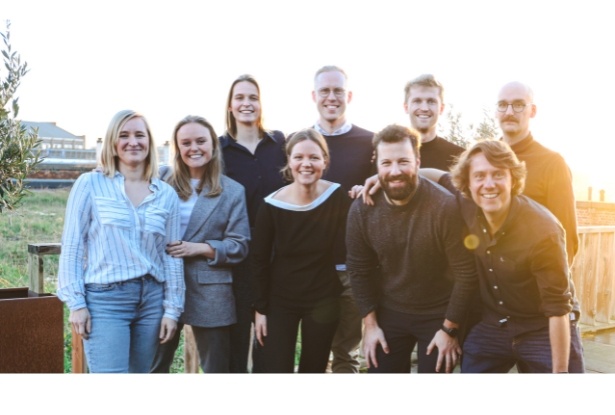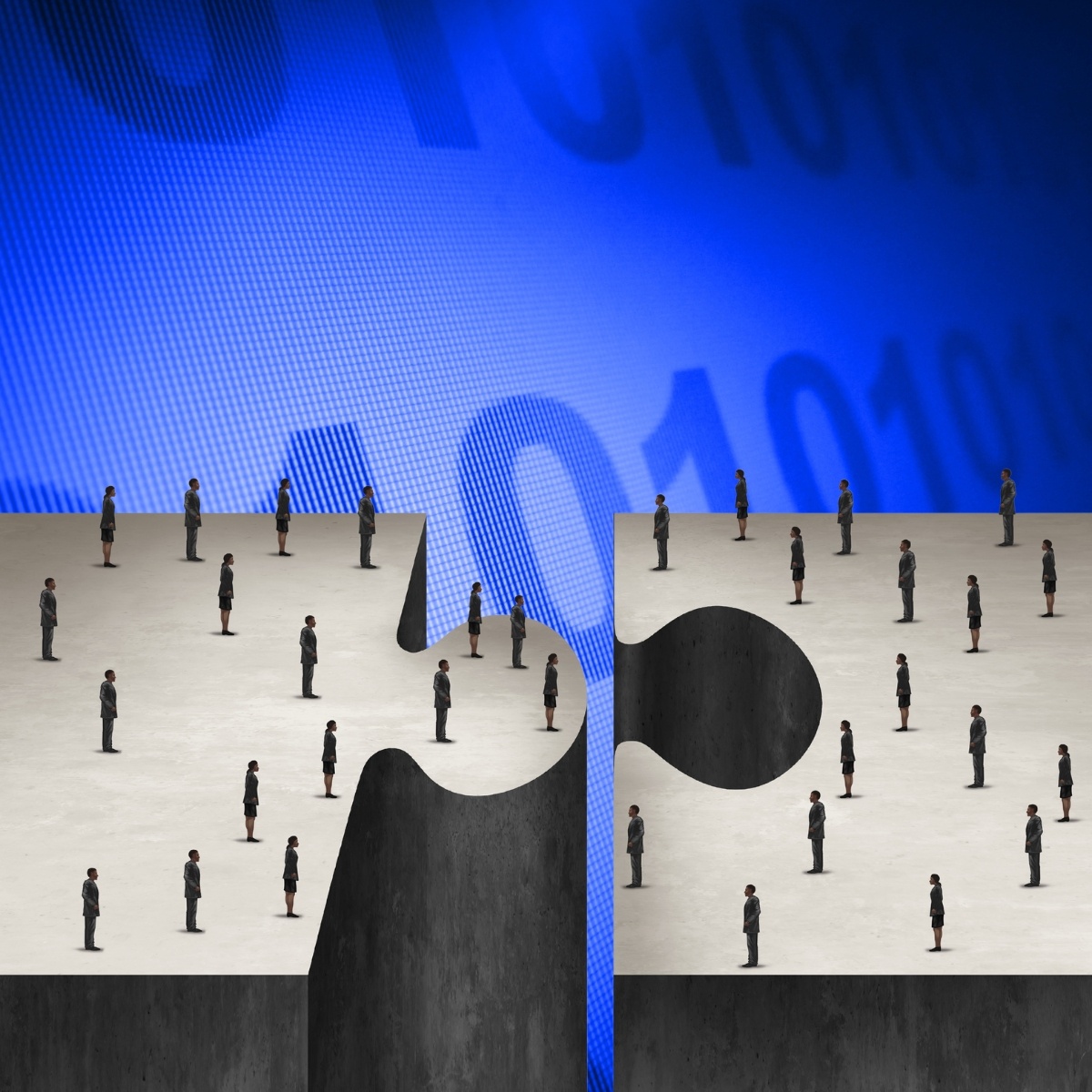- News
- Louisblog from oat milk lattes to data sharing
Louis' Blog -
From Oat Milk Lattes to Data Sharing
.jpg?width=615&height=415&name=CEO%20Blog%20banner%20(16).jpg)
Sometimes, you come across something that really makes you think. For me, that was the podcast De Havermelkelite (The Oat Milk Elite), which held up a mirror in a funny yet confrontational way. If you’re unfamiliar with the term, I recommend doing what any Gen Z would do – look it up on ChatGPT. The podcast captures the world of young, highly educated urbanites perfectly: the same trendy interiors, oat milk lattes, and carefully curated Instagram posts. It explores how the ‘oat milk elite’ can be identified worldwide and how strikingly similar they are. Admittedly, it was a little confronting to see how much I could relate – yes, I, too, often go for that overpriced soap or the trendy shoes that everyone seems to own.
Subtle Nihilism
The episode that hit me hardest was the one about our generation’s subtle nihilism. Gen Z appears to be losing some of its activist fire. For years, we’ve hoped for a better world, but increasing geopolitical tensions, economic challenges, and the climate crisis often leave us feeling indifferent. I’ve noticed how my own earlier activist drive has sometimes been replaced by thoughts like, ‘This is just how the world works’.
The image of a morally superior Western world is crumbling. When you see how divided Europe is in responding to conflicts in the Middle East, how the rise of far-right politics reflects people’s discontent, or how climate action seems to be slipping down the priority list, it’s understandable that many feel a sort of existential apathy. This is precisely the mindset I want to challenge.
A Call for Action and Innovation
Behind the Instagram profile of someone like me – a Gen Z label – lies another story. A story of hope and a desire for action. Because even though it sometimes feels like the world is on fire, there’s still so much to inspire us. In many ways, the world is better than ever. Innovation is advancing at lightning speed, people are living longer and healthier lives, and despite crisis after crisis, the economy continues to show surprising resilience. And Europe? I still believe it’s one of the best places in the world to live. But that position isn’t guaranteed. If we want to preserve our freedoms, our way of life, and our unique place in the world, we must continue to invest in progress.
-

As a true Gen Z'er, sipping on a cappuccino.
History repeatedly shows that innovation shifts the global balance of power. Railroads enabled large-scale trade. The Industrial Revolution gave Europe an edge that lasted for decades. And the atomic bomb – just as Oppenheimer so vividly demonstrated – rewrote the world order in an instant. Today, we stand on the brink of a new revolution: AI. This technology has the potential to reshape everything we know about the economy, society, and power. But like every big leap forward, it starts with a solid foundation. For AI, that foundation is data – high-quality, accessible data.
The World of Data Sharing
At FTI, we help companies make their data accessible by making data sharing profitable and removing barriers. Our goal is clear: to bring together datasets from various parties in order to generate new insights and breakthroughs.
We want to accelerate innovation and help Europe produce a few more unicorns. This isn’t just essential for economic growth – it’s critical for maintaining our unique position in the world.
Honestly? Before joining FTI, the world of data sharing was largely unknown to me. My previous experience in the FMCG sector revolved around tangible, concrete products. Transitioning to data and innovation initially felt abstract, but that’s precisely what made it so intriguing.
In your first six months on the job, you often have a fresh perspective. It’s a time when you’re not yet used to ‘how things are done’ and still dare to ask, ‘Why don’t we do it differently’? I want to capture that perspective here, because I’ve noticed that conversations about data sharing often fall into the same traps.
Organizations tend to be cautious. The focus is often on what’s not possible, what’s not allowed, or the rules that hold us back. Fear and regulation dominate, while the conversation about possibilities, opportunities, and innovation takes a back seat. I’ve also learned that the contrast with other parts of the world, like the U.S. and China, is stark. There, limitations seem to be minor obstacles, allowing companies to make tremendous progress. Without judging which approach is better, it’s striking to see how American and Chinese companies are gaining ground while European companies keep running into their own walls.
Are we, with our regulations, sabotaging our own progress and stifling innovation?
Gen Z and Data
As a Gen Z’er, I’ve grown up in a world where data is constantly being collected and shared. For us, data sharing is a given – a trade-off we accept for technology, personalized content, and connectivity. But this acceptance comes with a clear expectation: data sharing must be fair, transparent, and mutually beneficial.
We want to know what’s happening with our data, who is using it, and, most importantly, why. Without that clarity, organizations risk losing trust, leading to hesitation that only deepens the paralysis. Gen Z is willing to share data, if it benefits us – or society. Think of better healthcare through data analysis, innovations in mobility, or initiatives that contribute to a more sustainable world. We see the potential but are often paralysed by a fear of misuse or loss of control.
This is the paradox: we crave innovation, but our focus on risks causes us to overlook opportunities.
The key lies in finding balance. How can we use data in a way that builds trust and delivers tangible benefits? The success of data sharing doesn’t just depend on technical solutions; it also relies on how we tell the story behind it. It’s up to us – Gen Z and other generations – to look beyond the fear and seize the opportunities that data sharing offers.
Making the Pie Bigger
What also strikes me – and frankly frustrates me – is the lack of ownership I encounter, not just on a national level but also in day-to-day work. Over the past few months, I’ve spoken with countless people from different organizations and at all levels. There’s no shortage of vision, but that vision often gets stuck in ‘practical objections’ or blame-shifting onto ‘the other person’.
Everyone seems to be protecting their own interests. We talk about collaboration and connection but think in terms of, ‘How can I get the biggest slice of the pie?’ rather than, ‘How can we make the pie bigger together?’ This dynamic is also evident in political decision-making. Parties struggle to rise above their own agendas and, in that impasse, we lose valuable time and ground to real competitors. Or, to use a cliché: when two dogs fight over a bone, a third one runs away with it.
But I refuse to accept this. I believe we can break this cycle. By fostering innovation, we can make that bigger pie together and ensure Europe keeps a substantial slice – not out of imperialistic ambition but to protect our freedoms and way of life.
A few months from now, I hope I can say that we’ve made progress. That I’ve managed to steer clear of excuses about overregulation, practical barriers, or ‘the other person’. And that I continue to work with an optimistic attitude toward the change I envision – sipping my oat milk latte while posting an Instagram photo of my overpriced hand soap. Because while that soap is nice, I hope to make a bigger impact.
Other news articles
 19/03/2025
19/03/2025
Data-driven nutritional journeys in the spotlight
With a shared drive to improve well-being through technology, BiometrIQ is joining forces with FTI as part of the Elli use case.
Read more
 03/04/2025
03/04/2025
CEO's Blog - Beyond data egoism: let’s embrace data altruism
The value of data doesn’t lie in keeping it locked away – it grows when it’s shared. Companies that open up, tend to be the ones ...
Read more
 03/04/2025
03/04/2025
The paradox of health data and GDPR: is your data worth dying for?
Our strong commitment to privacy is something to be proud of, but the strict interpretation of GDPR, both in regulation and ...
Read more